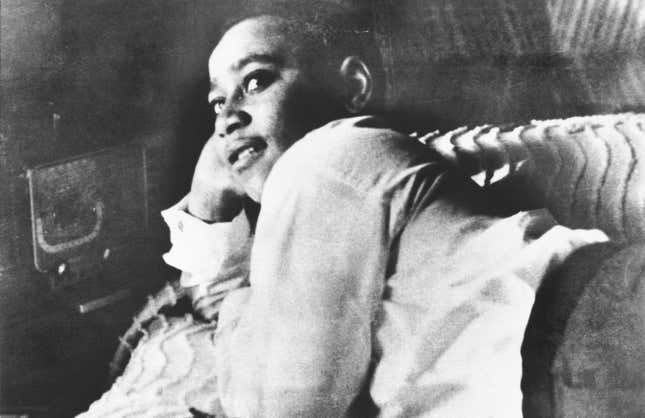
Emmett Till’s family members are calling for the prosecution of the woman who accused him of whistling at her in 1955, leading to his brutal murder, reported CBS News. Though the Justice Department closed the investigation into his murder, Till’s relatives are seeking another angle to finally bring justice to the case.
Carolyn Bryant Donham, now in her 80s, was named over 60 years ago in a warrant accusing her of kidnapping Till, per CBS. However, she was never arrested nor was she brought to trial in the case. Instead, her husband and another man were targeted by authorities for the murder to which an all-white grand jury acquitted them of the crime.
Till’s family attorney, Jaribu Hill, told CBS the kidnapping warrant may not have been dismissed and if located, could still be served on Donham to bring her to criminal court.
More on the case from CBS:
There are plenty of roadblocks. Witnesses have died in the decades since Till was lynched, and it’s unclear what happened to evidence collected by investigators. Even the location of the original warrant is a mystery. It could be in boxes of old courthouse records in Leflore County, Mississippi, where the abduction occurred.
Now in her late 80s and most recently living in Raleigh, North Carolina, Donham has not commented publicly on calls for her prosecution. She did not seem to know she had been named in an arrest warrant in Till’s abduction until decades later, said Dale Killinger, a retired FBI agent who questioned her more than 15 years ago.
Filmmaker Keith Beauchamp also agreed there is enough evidence to prosecute Donham. His documentary, “The Untold Story of Emmett Louis Till” sparked the Justice Department’s investigation back into the murder in 2007.
According to Dale Killinger, a retired FBI agent who questioned Donham 15 years ago, the woman had no idea until recently she was even named in the arrest warrant. Killinger said he didn’t see the original warrant nor any indication that it was canceled by the court, via CBS.
However, even if the warrant is found, the courts will need witnesses to testify; many of whom are dead.

